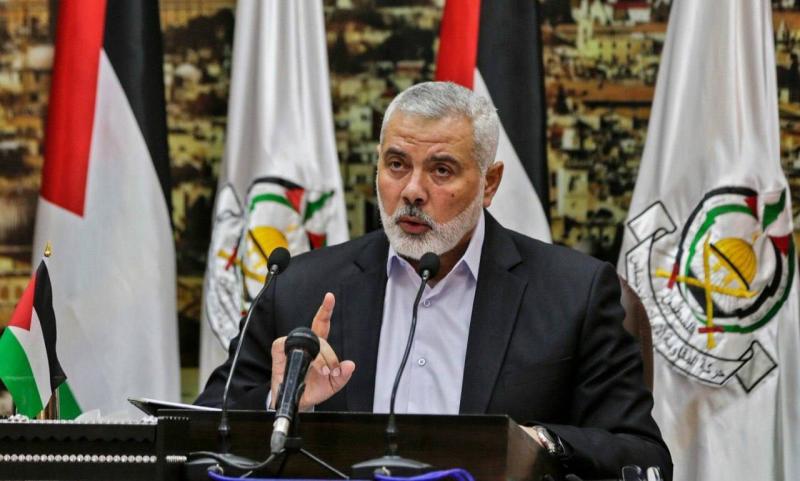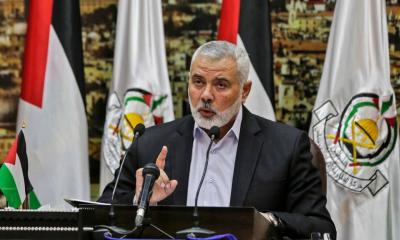In an extensive interview with Turkish media broadcasting in Arabic, Hamas political bureau chief Ismail Haniyeh affirmed that "Israel wants Hamas and the resistance to agree to maps of Israeli army deployment in order to legitimize the occupation of the Gaza Strip or part of it, and this cannot happen; there must be a complete withdrawal from the Gaza Strip." He stated, "The occupation does not want the displaced to return to northern Gaza and their residential areas, and agrees only to a gradual return in limited numbers, which also cannot be accepted. It also refuses to grant the necessary entitlements for a prisoner exchange and rejects providing large numbers, wanting to control them, while continuing to detain about 14,000 new prisoners since October 7 from the West Bank and Gaza Strip."
He continued, "What obstructs reaching an agreement is the Israeli occupation, as well as the American administration, which adopts an Israeli vision and supports it every time without exerting any pressure on it to respond to reasonable and correct demands. When the occupation agrees to these demands, we will be ready to sign the agreement." He noted that "Hamas has proposed countries as guarantees for the agreement, including Egypt, Qatar, Turkey, Russia, the United Nations, and the United States. However, each time, the Israeli side refuses to have Turkey and Russia among the guaranteeing countries, and we remain firm on this despite the Israeli rejection."
He added, "Since October 7, the occupation has adopted a strategy that begins with extensive air bombardments in the Gaza Strip, followed by ground incursions, and what is called the third phase, which is targeted killings, in addition to its use of military and humanitarian sieges on the Gaza Strip in general. It has destroyed everything, from hospitals and schools to universities, infrastructure, bakeries, pharmacies, and pharmaceutical factories; nothing remains at all. As a result, Gaza and northern Gaza have gone for more than five months without anything entering, prompting the occupation to use the weapon of starvation to break the people's will and pressure them to migrate from north to south, thereby emptying Gaza and the north and considering them a security area or part of the envelope imposed by Israeli authorities."
He stated, "The future of the resistance in Gaza remains steadfast and resilient; it resists and defends our Palestinian people. Since October 7 until now, it has been in a position of capability and has provided something akin to a miracle in both attack and defense, whether that was on October 7 or during the past eight or seven months." He continued, "The resistance continues to confront the occupation on all fronts, using diverse methods, with defensive and offensive plans, and has a very high capacity to deal with the field situation and security developments, proving that this resistance has a strong will that does not yield, drawing strength after God Almighty from the will of our people and from the popular support in Gaza."
Regarding the involvement of the Houthis, he said, "No one imagined or believed it possible that an action from Yemen could impact the Red Sea and exert tremendous pressure on the maritime traffic heading to the entity. This has very clear effects on the Israeli economy and on the economies of the companies and ships dealing with it in one way or another." He added, "The developments in the confrontation between Iran and Israel indicate that the scope of confrontation is expanding in the region, whether in Lebanon, Iraq, Yemen, Syria, and reaching Iran. All of this is linked to the continued aggression and genocide against the Gaza Strip, and I believe that when the aggression on Gaza stops, these fronts will certainly witness calm. It is no secret that Iran provides military and financial support to the resistance in Palestine, as well as technical support, which has been known for years, and it also has a strategy and policy to continue this support in light of the Al-Aqsa flood and the aggression on Gaza."




